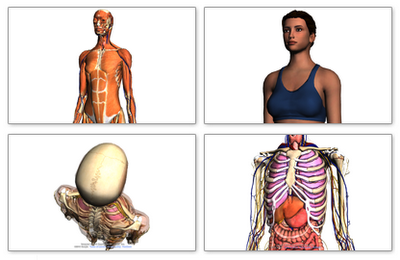 Google has recently announced an application called Body Browser that allows to visualize complex 3D graphics of the human body.
Google has recently announced an application called Body Browser that allows to visualize complex 3D graphics of the human body.
Body Browser application works in the latest beta version of Google Chrome browser and uses WebGL, a new standard that enables 3D experiences in the web browser without any plug-ins. Using Body Browser, you can explore different layers of human anatomy by moving the slider to rotate and zoom in on parts you are interested in. You can also share the exact scene by copying and pasting the corresponding URL.

For further information, please visit: http://bodybrowser.googlelabs.com